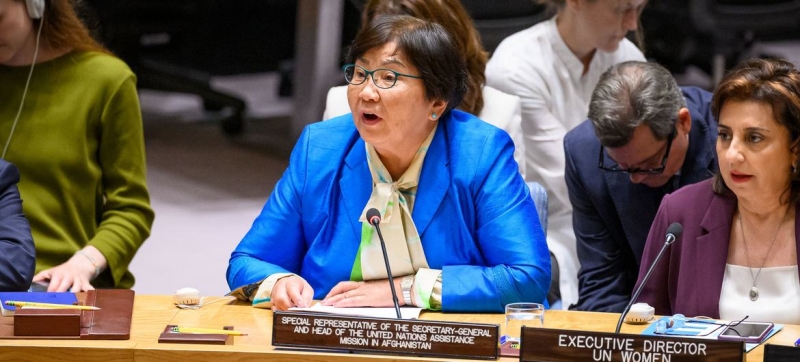
Roza Otunbayeva in the UN Security Council. Otunbayeva: the policy of the de facto authorities of Afghanistan is aggravating the humanitarian crisis in the country Human Rights
The de facto authorities in Afghanistan have “ensured a period of stability unseen in decades,” but the humanitarian situation in the country continues to deteriorate due to a reduction in international funding, Roza Otunbayeva, the UN Secretary-General’s Special Representative for Afghanistan, said at a briefing at the UN Security Council.
“The de facto authorities are exacerbating this crisis with policies that do not sufficiently focus on the real needs of the people and undermine their economic potential,” she said.
Lack of humanitarian aid
She noted that the current $3 billion humanitarian response plan is only 30 percent funded.
“There is no indication that additional resources will be made available as we approach the final quarter of the year,” Otunbayeva said.
The lack of funding has led to the closure of more than 200 mobile and fixed health facilities this year, with another 171 health facilities set to close in the next few months.
Food rations in areas already suffering from hunger have also been halved. Several million people live in areas where there is no access to safe drinking water.
“The humanitarian crisis will soon become a development crisis, given Afghanistan’s rapidly growing youth population, an economy that cannot accommodate it, and international donors reluctant to provide development assistance – in large part because of restrictions on the movement and activities of half the population,” the Special Representative said.
Restrictions on Women
Otunbayeva stressed that Afghanistan is ostracized by the international community. The Taliban, she said, have imposed their own interpretation of “Islamic law” on the population. This particularly affects women and girls.
UN Women Director-General Sima Bacchus provided the Security Council with more detailed information on the situation of women in the country and, in particular, on the new a law that requires women and girls to cover their bodies when leaving the house, and prohibits them from singing, reading or reciting poetry in public, and looking at men to whom they are not related.
“Afghan women fear not only these repressive laws, but also their arbitrary application,” Bacchus said.
“Life under such conditions is truly unbearable,” she added.
Bacchus also pointed to the continuing restrictions on women’s education, noting that only Afghan boys continue to attend school and are taught a curriculum that is known only to the movement “Taliban.”
“We must listen to the girls in Afghanistan.”
A 21-year-old Afghan woman named Mina, who no longer lives in the country, also spoke at the briefing. She shared her concerns that the next generation of Afghan girls will feel unworthy of an education.
“We must listen to the girls in Afghanistan and do everything we can to end their oppression,” she said.
The speakers called on the Council to take action to protect women and the entire population of Afghanistan.
“We can decide to devote our political will and resources to supporting… Afghan women,” Bacchus said.
“I ask you once again not only to stay the course, but to commit with renewed determination,” she added.
